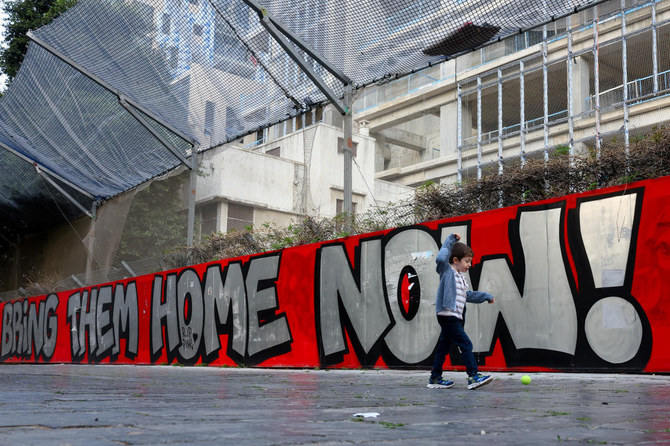
The question in Lebanon is no longer if war will break out, but when. All the indicators and all the events and developments that have followed one another over the last 240-plus days indicate that Lebanon has become trapped in a frantic race between repeatedly failed settlement efforts and the gradual escalation toward a full-scale war, which is now expected over the course of this summer.
Let us not forget that, at the start of the war — on Oct. 8, 2023 to be precise — Hezbollah launched its mini-war called the “Gaza Support War.” In other words, it defined its framework and limits, announcing in advance that it was not an open war. But as the days went by, the situation degenerated into a full-blown war that increased in violence and intensity, until the Israelis approached the sensitive and most dangerous phase of the war in Gaza, with the start of the incursion into the city of Rafah, the last stronghold of the Hamas movement and other Palestinian fighting factions in Gaza.
This automatically raised tensions across the region. All the more so since representatives of the Tehran-led “axis of resistance” decided, at a meeting held on the sidelines of the funeral of the late Iranian President Ebrahim Raisi, to launch a series of attacks from all Iranian-controlled areas, including Lebanon.
It goes without saying that Lebanon is under the almost total control of the pro-Iranian militia Hezbollah. Now, approaching 250 days after the outbreak of clashes with the Israeli army, the Land of the Cedars has become an Iranian beachhead on Israel’s doorstep. It seemed that the battle Iran was waging would be a long-term, low-level one. But it has turned into fighting that has reached an extremely disturbing level of violence.
The problem is that the whole country is powerless to prevent Hezbollah from continuing to play with the fate of 6 million Lebanese.
Ali Hamade
All this is happening at a time when we are witnessing propaganda campaigns in Israel. These are said to be linked to the situation on the northern border with Lebanon and the fact that more than 100,000 members of the civilian population there have been forced to flee their homes to central Israel. This has been accompanied by Hezbollah stepping up its strikes against Israeli military installations on the border. The pro-Iranian party even resisted all mediation by the US and France to reduce the escalation.
But the irony is that the results expected by Hezbollah and Iran do not match reality. Their attempts to impose precise and limited rules of engagement with Israel have been in vain, as the latter has exceeded the rules in terms of widening the battlefield, as well as increasing the intensity and violence. Hence the danger looming on the horizon for Lebanon. The latter seems to be increasingly being pushed toward a war that the majority of Lebanese do not want.
Hezbollah has taken a big risk, going it alone in a war against Israel, and involving with it the whole of Lebanon in a cycle of violence that has not stopped for seven consecutive months. The problem is that the whole country is powerless to prevent the Iranian militia from continuing to play with the fate of 6 million Lebanese. Indeed, Hezbollah is determined to adhere to the Iranian policy of “arena unity.”
As for the Lebanese political class, it is either incapable, complicit or negligent. Most political leaders chose to look the other way the day the Iranian militia invaded the Lebanese state, shattering its constitution, laws and institutions. This impotent political class turned its gaze away, perhaps for fear of the narrow interests guaranteed them by their implicit alliance with Hezbollah. Only a few courageous political forces and leaders remain opposed to this destructive trend for the country. But the margins are narrowing. The game is becoming more dangerous by the day, with the imposition of the equation of the state of force to the detriment of the rule of law in Lebanon.
The war in Gaza is a real war. But the war in Lebanon is also real and threatens to become as bloody and horrific as the war in Gaza. Will the next great war be the war in Lebanon?
Ali Hamade is an editorial journalist at the Annahar newspaper in Lebanon. X: @AliNahar












